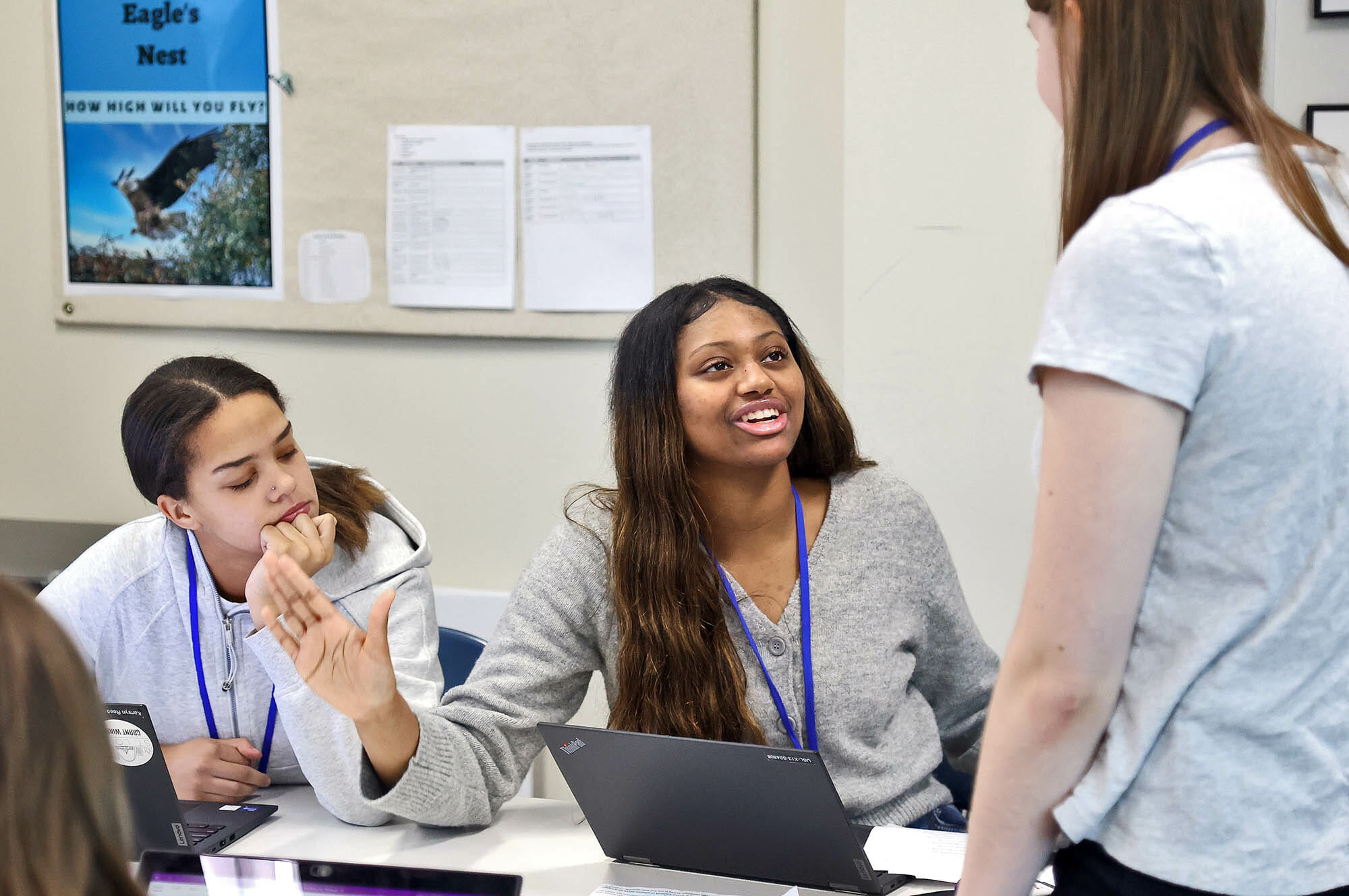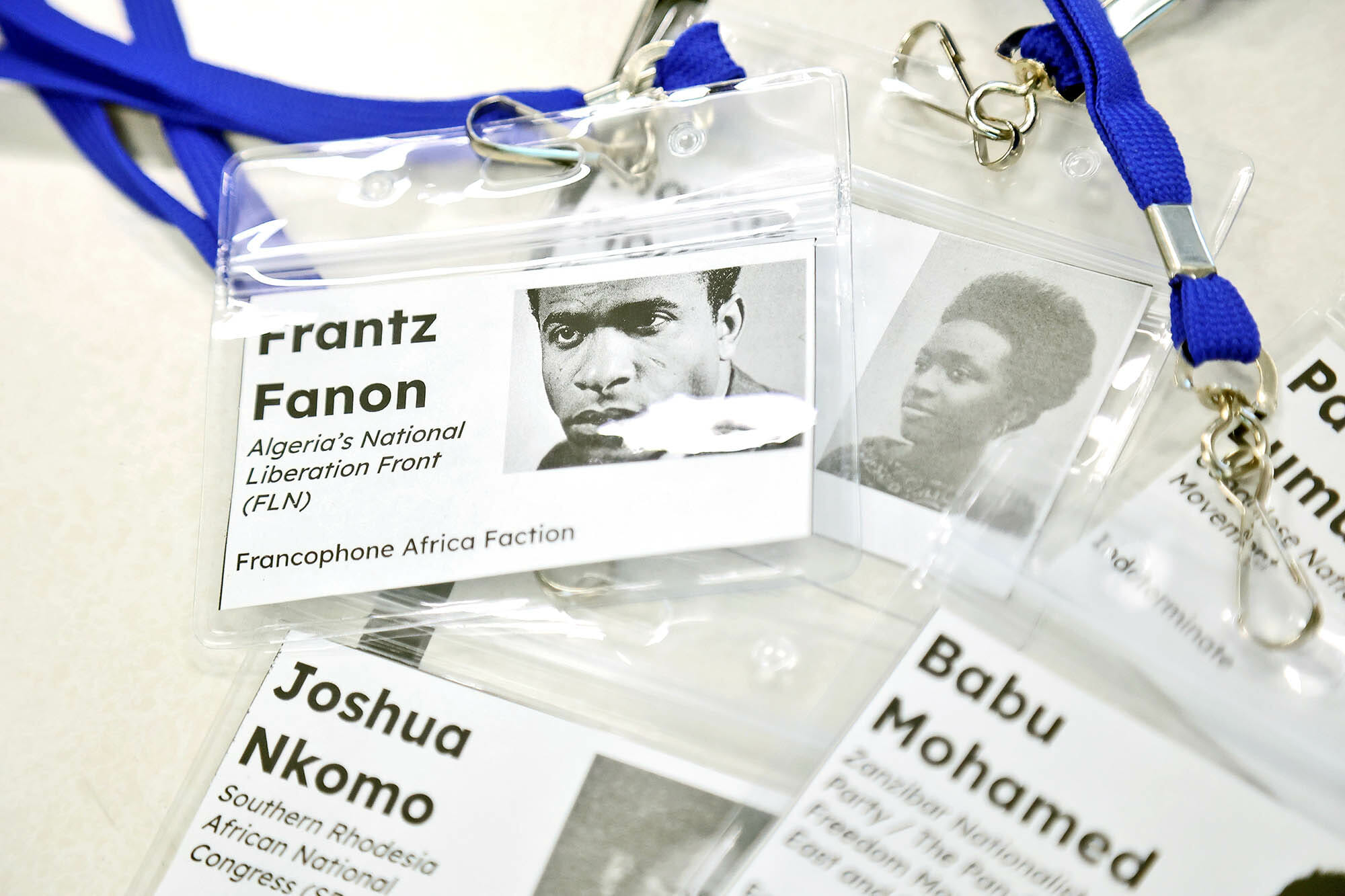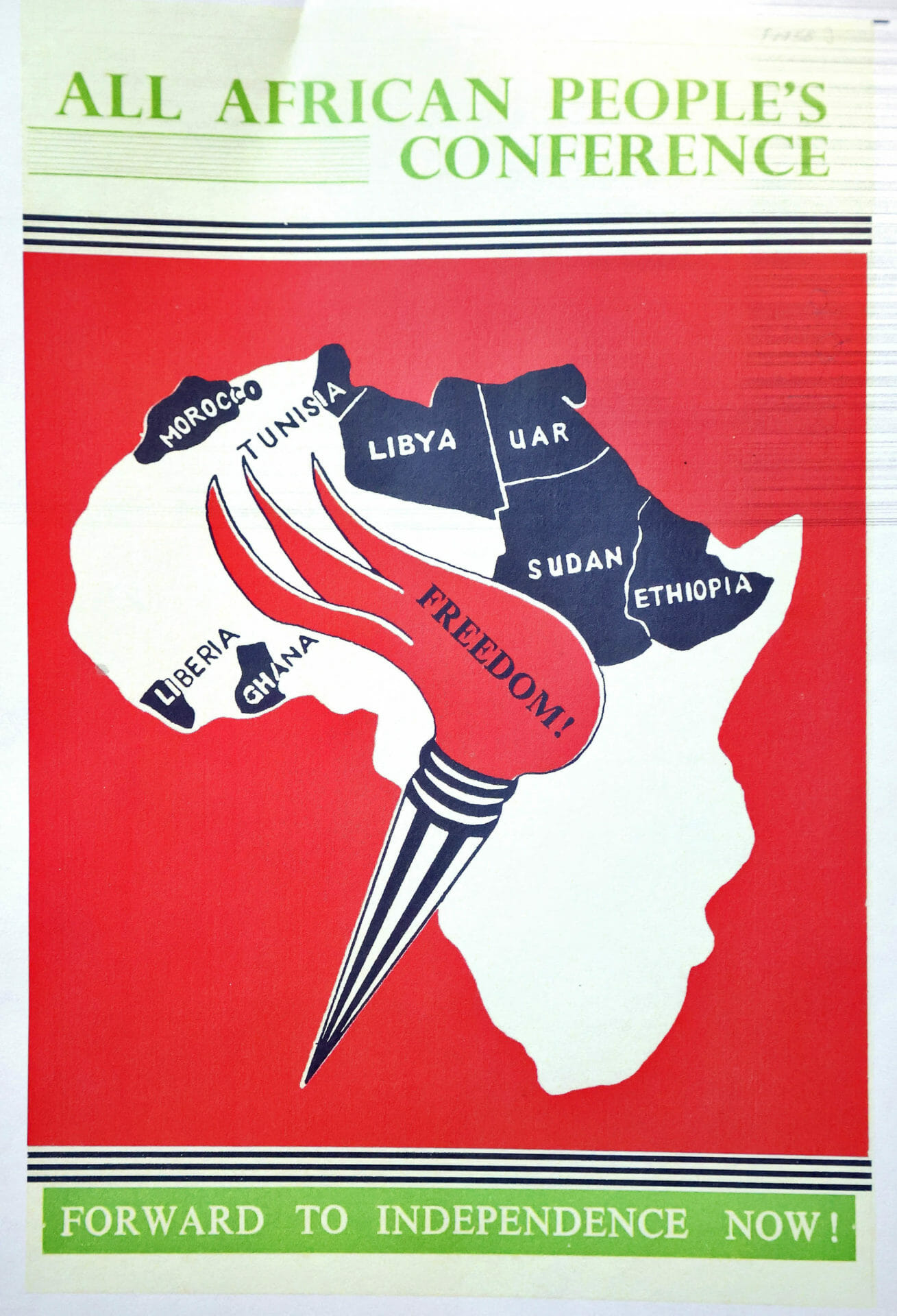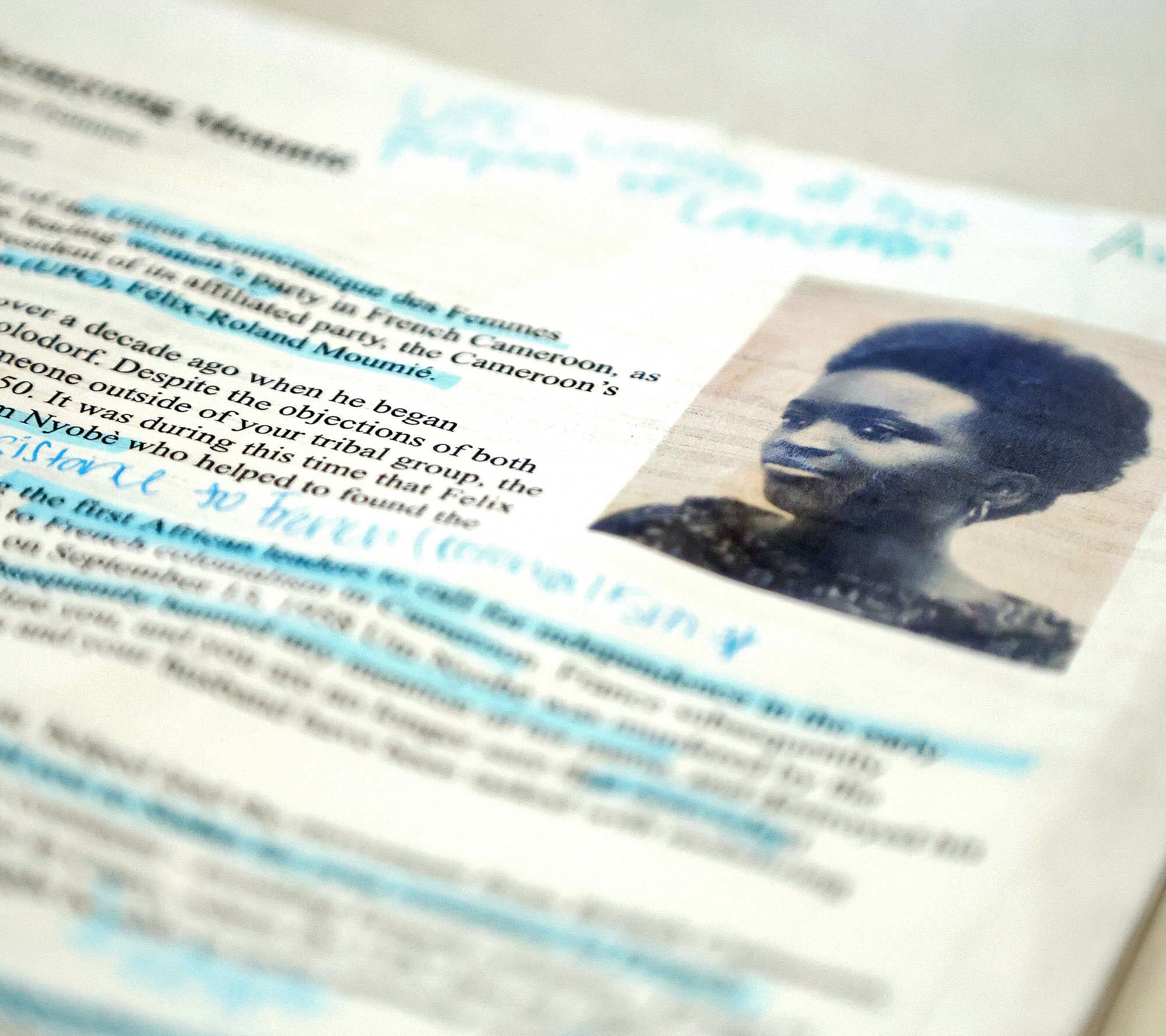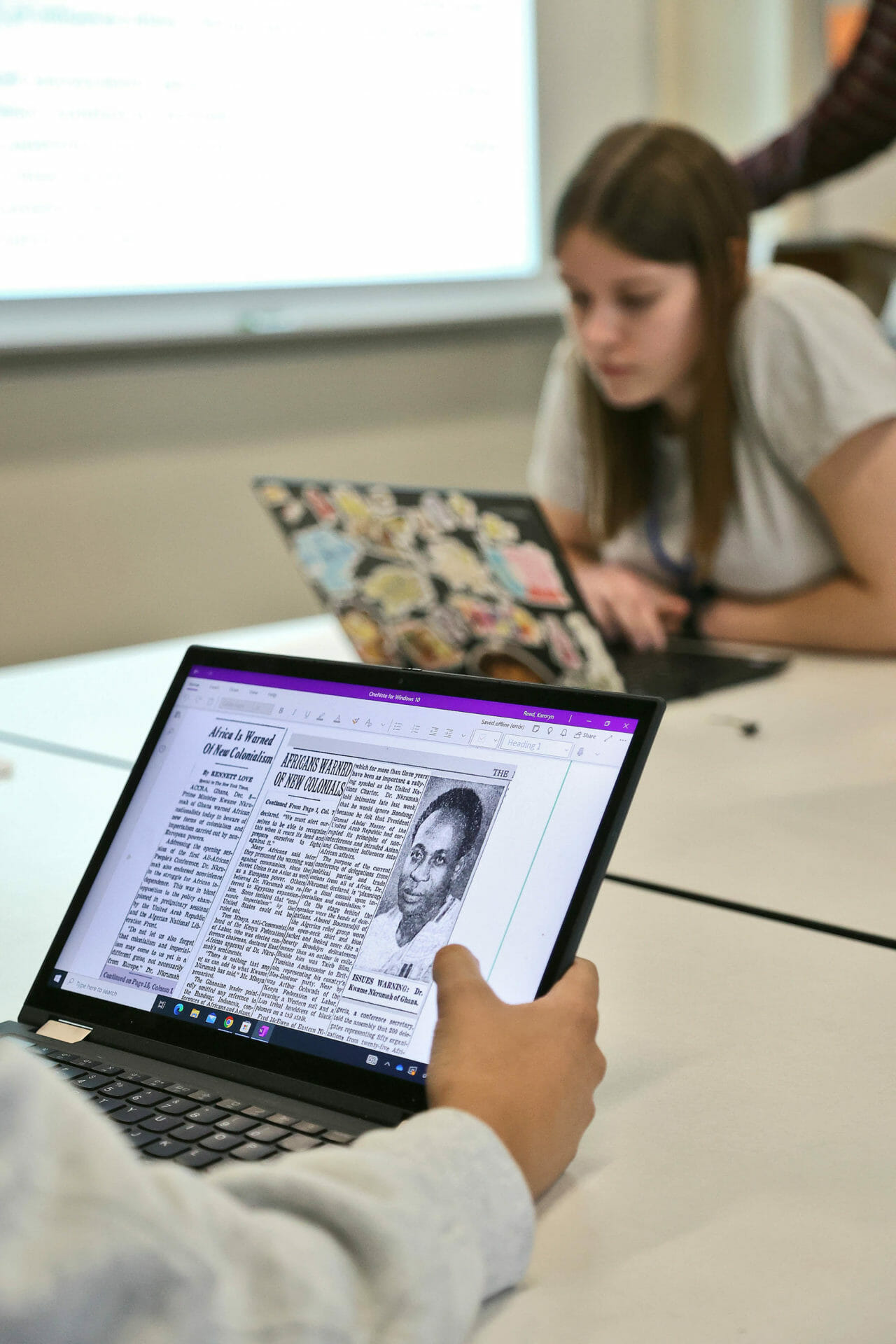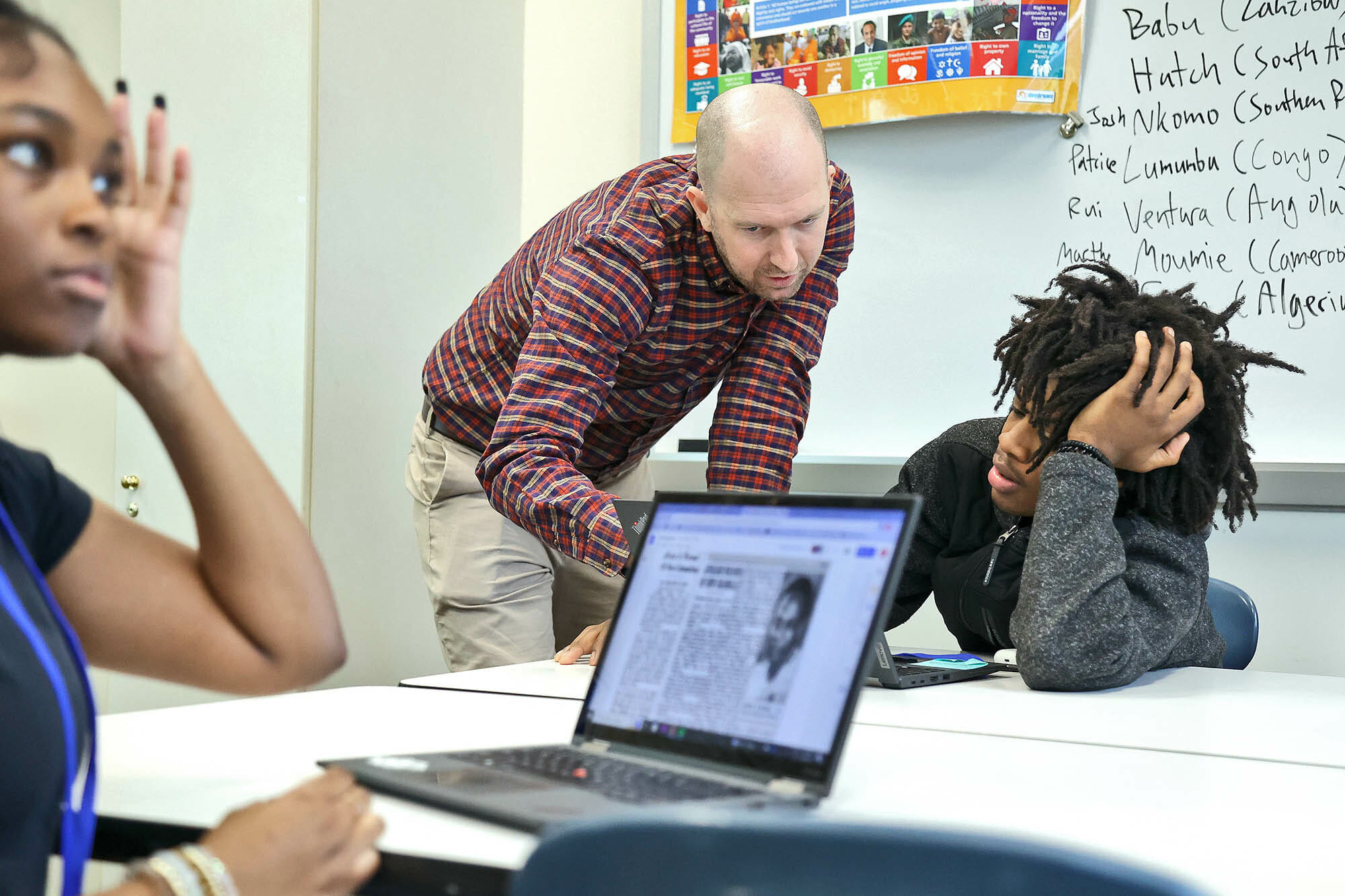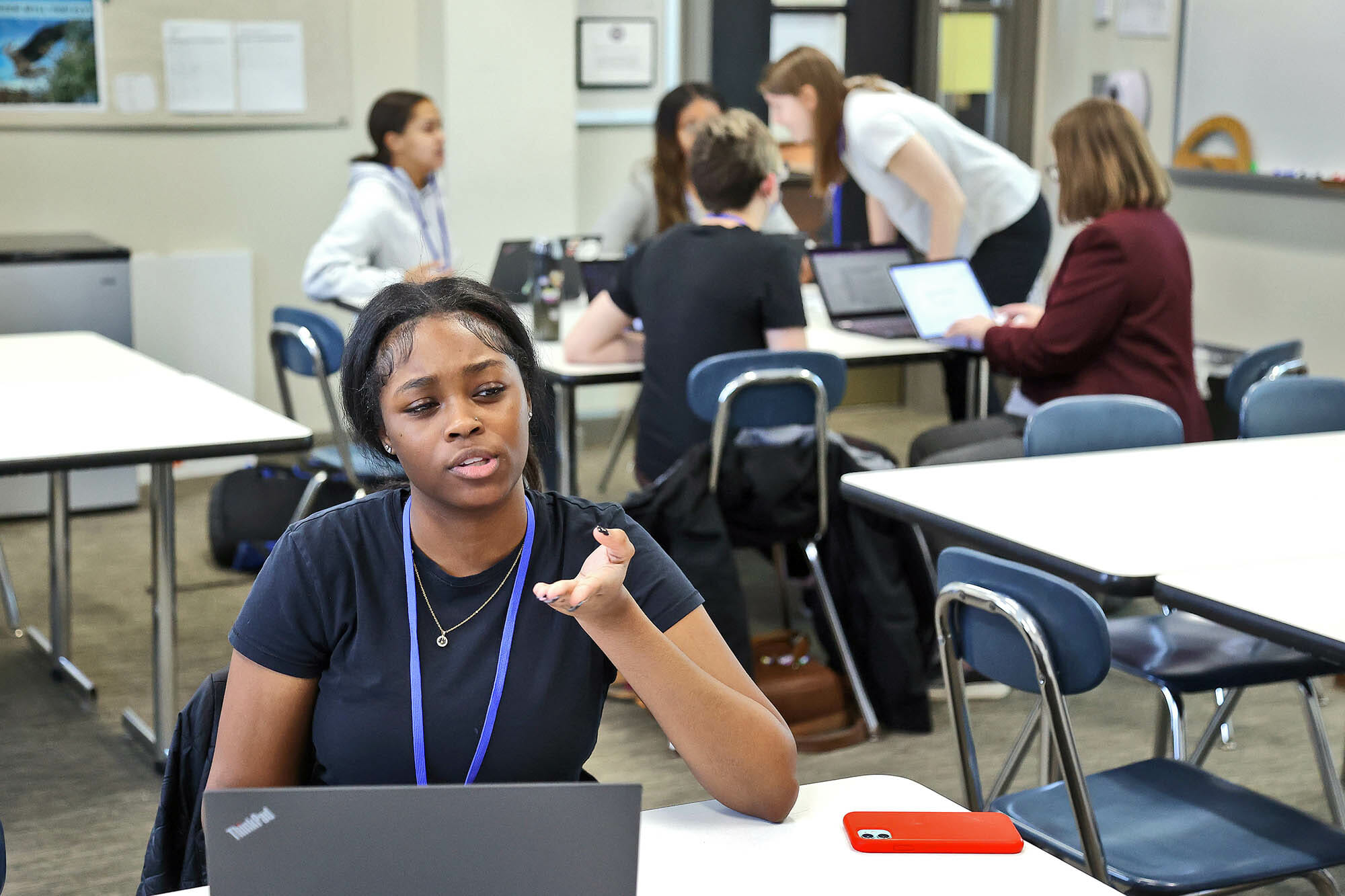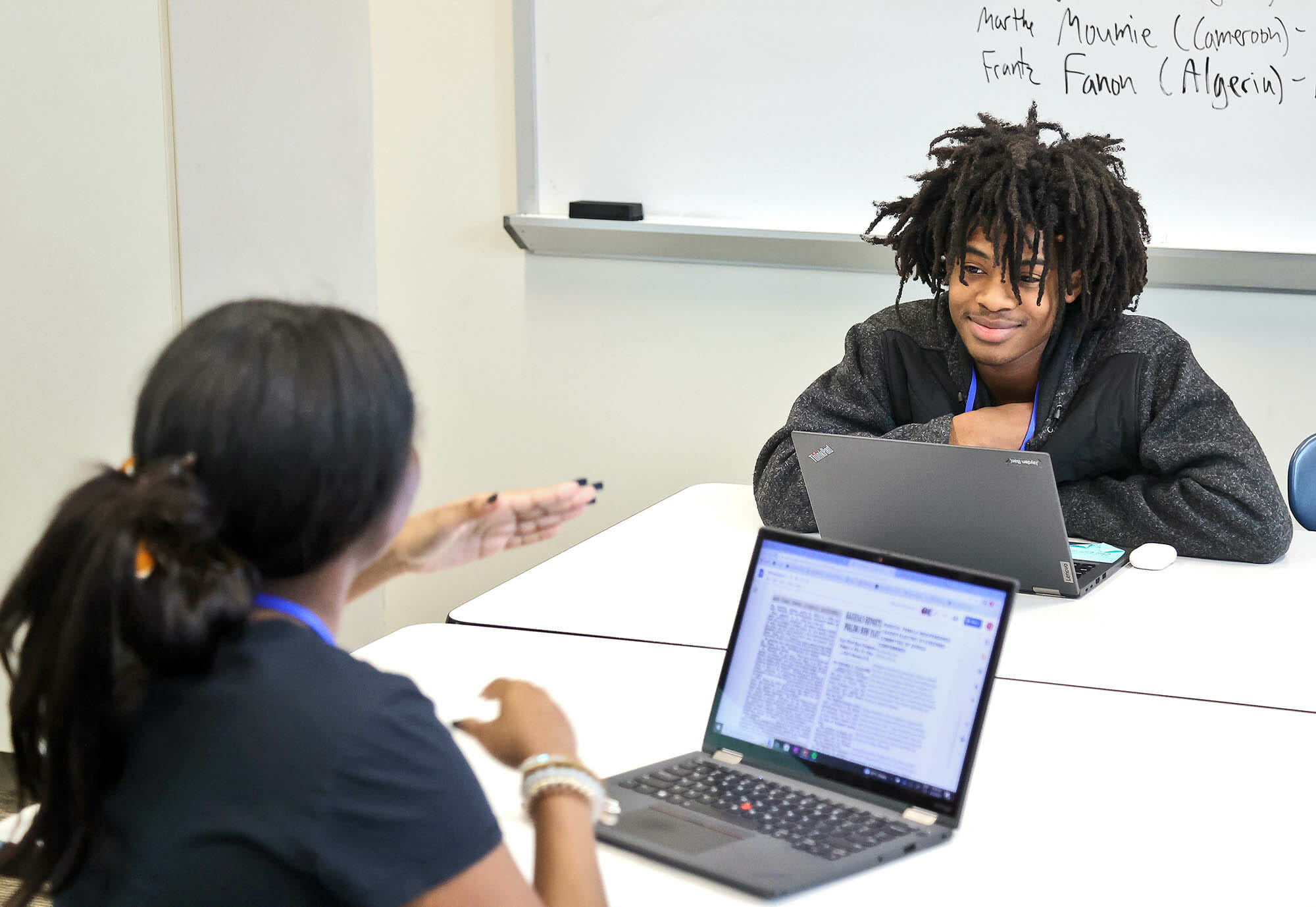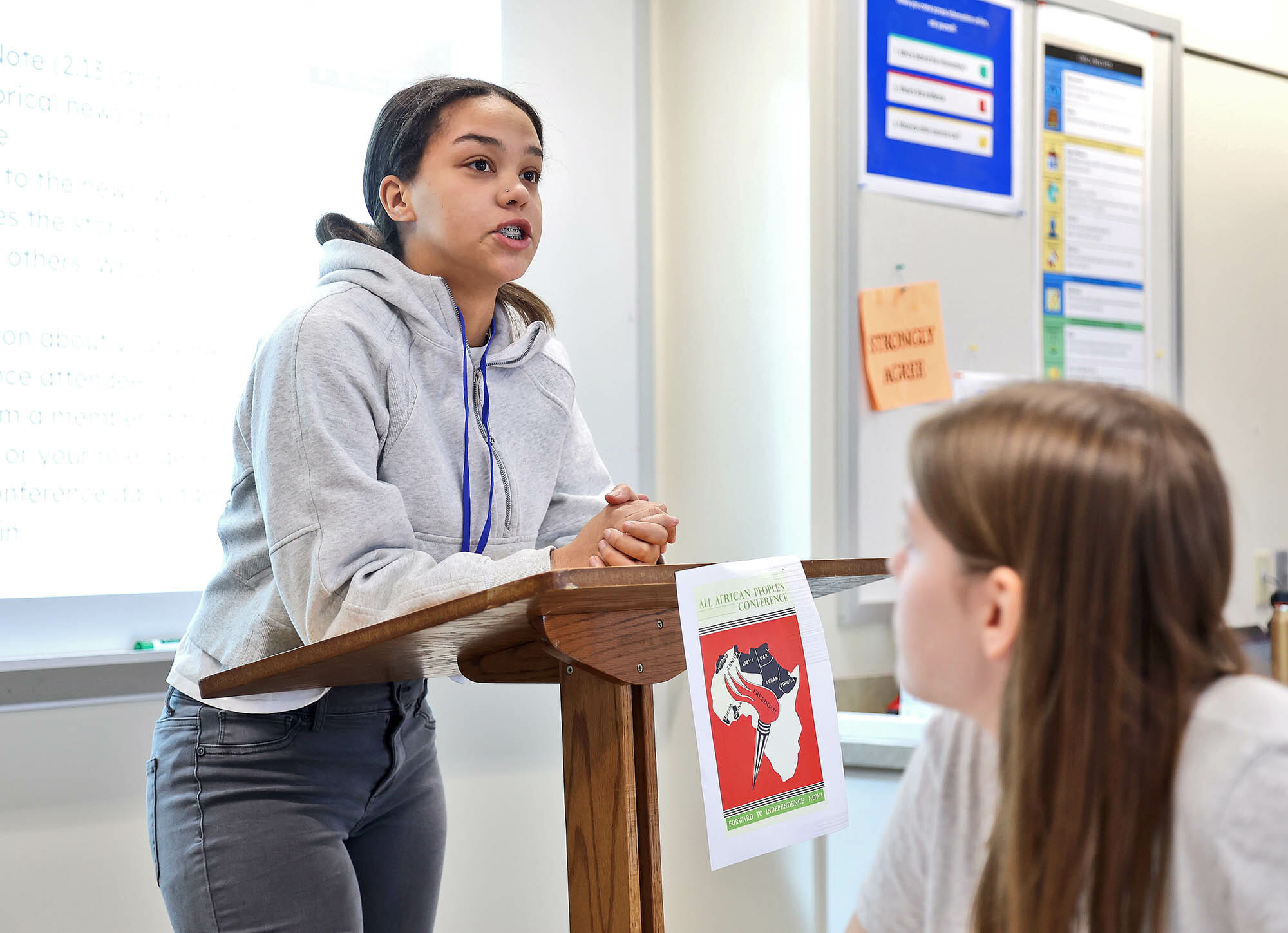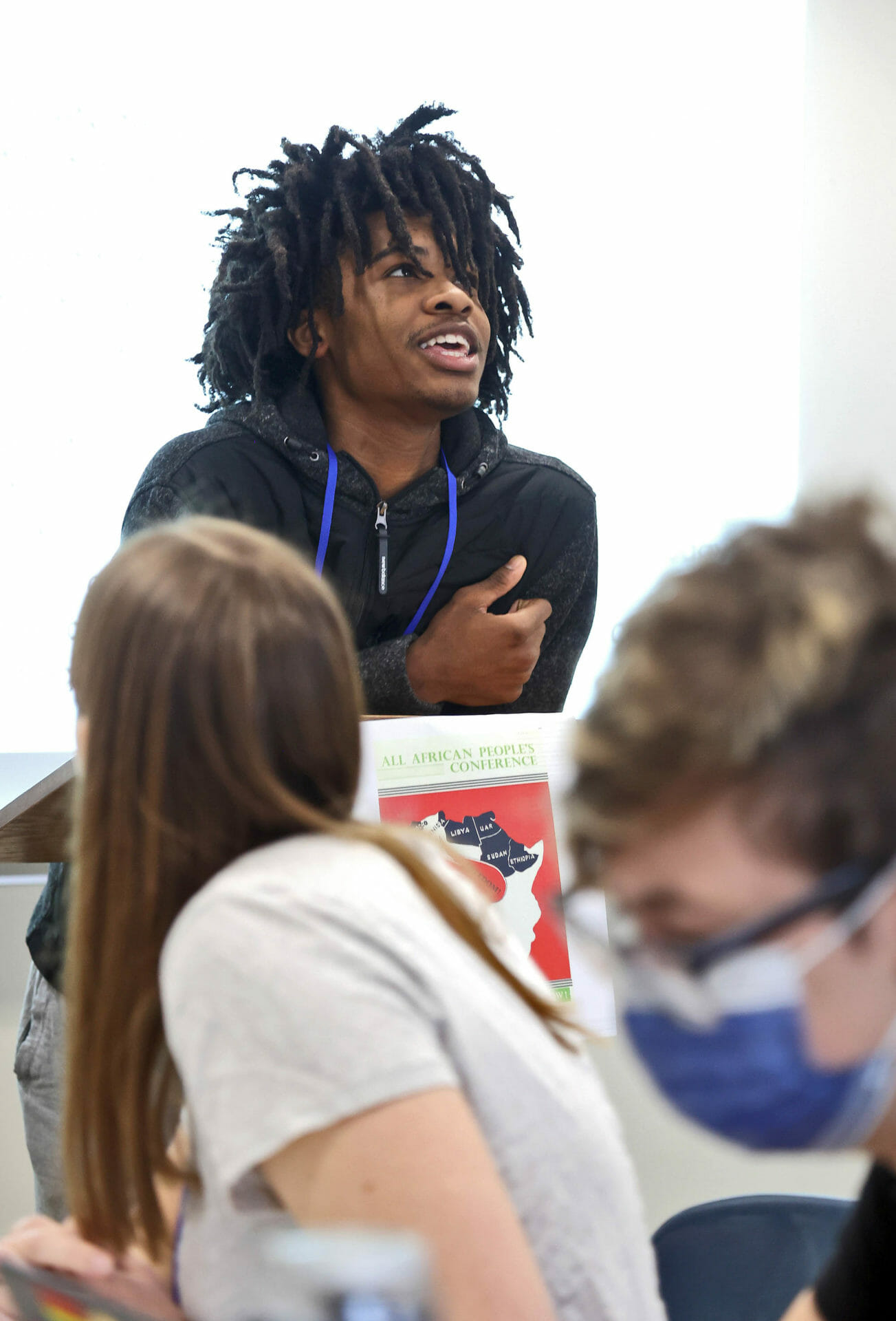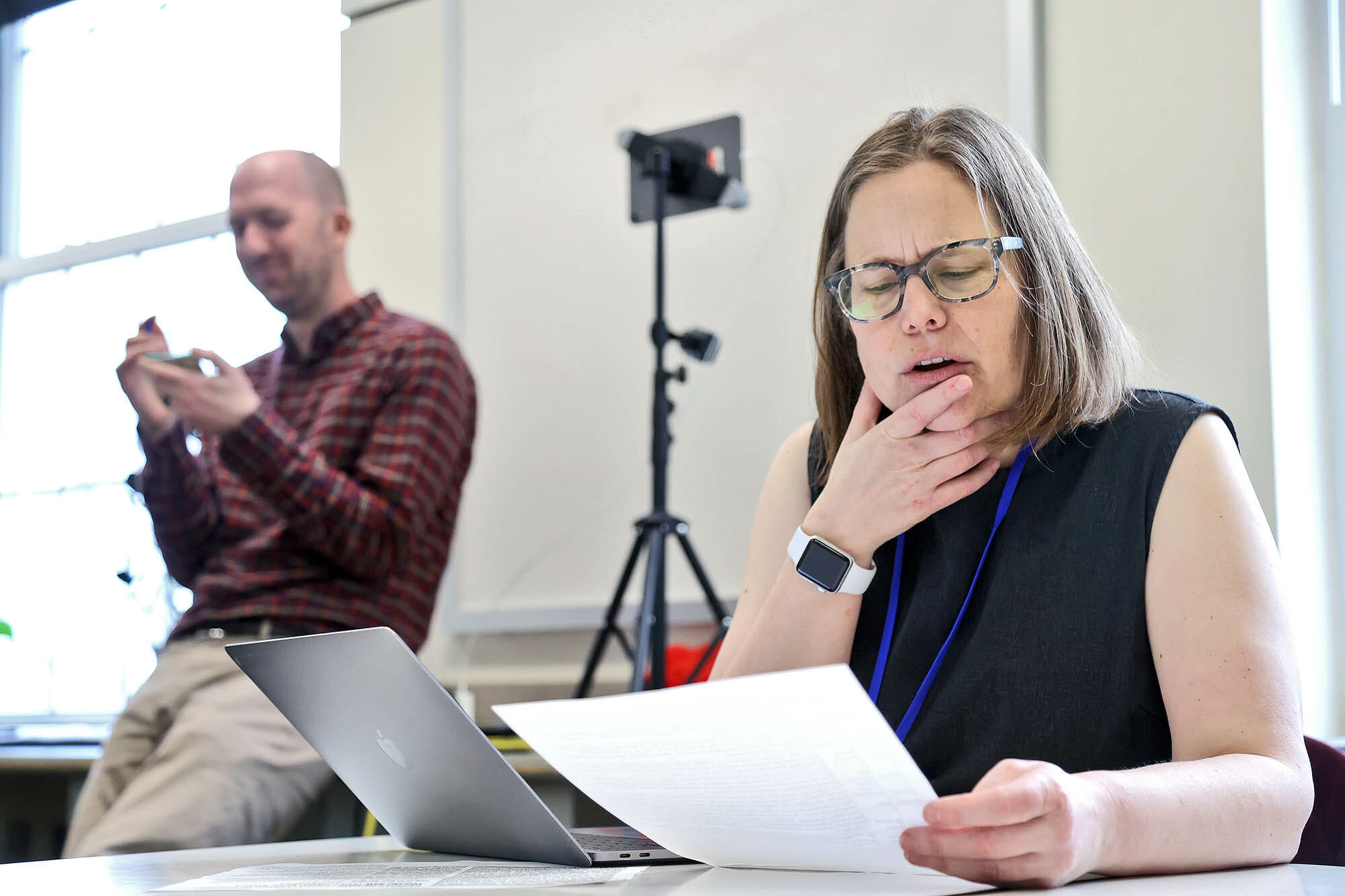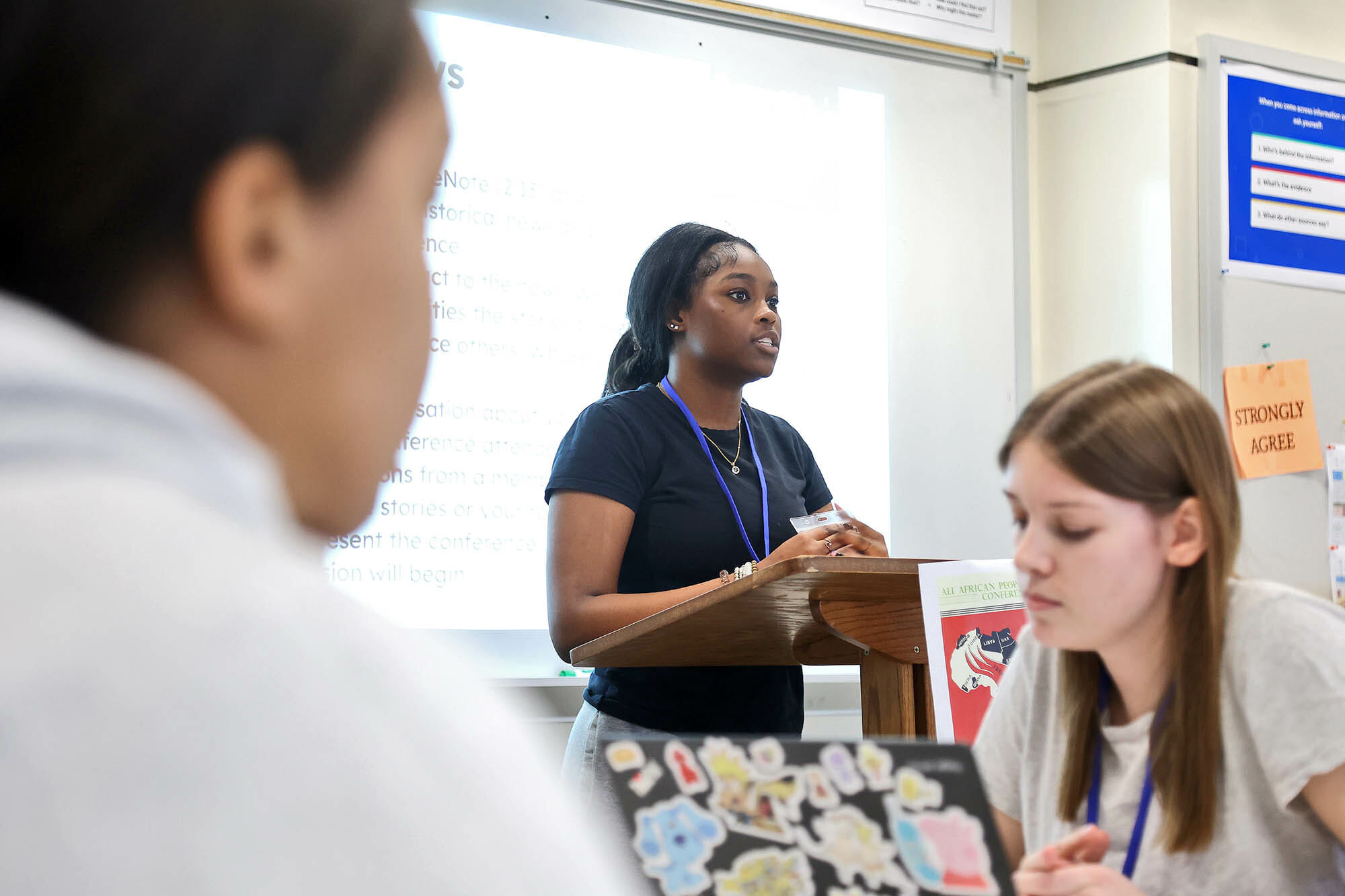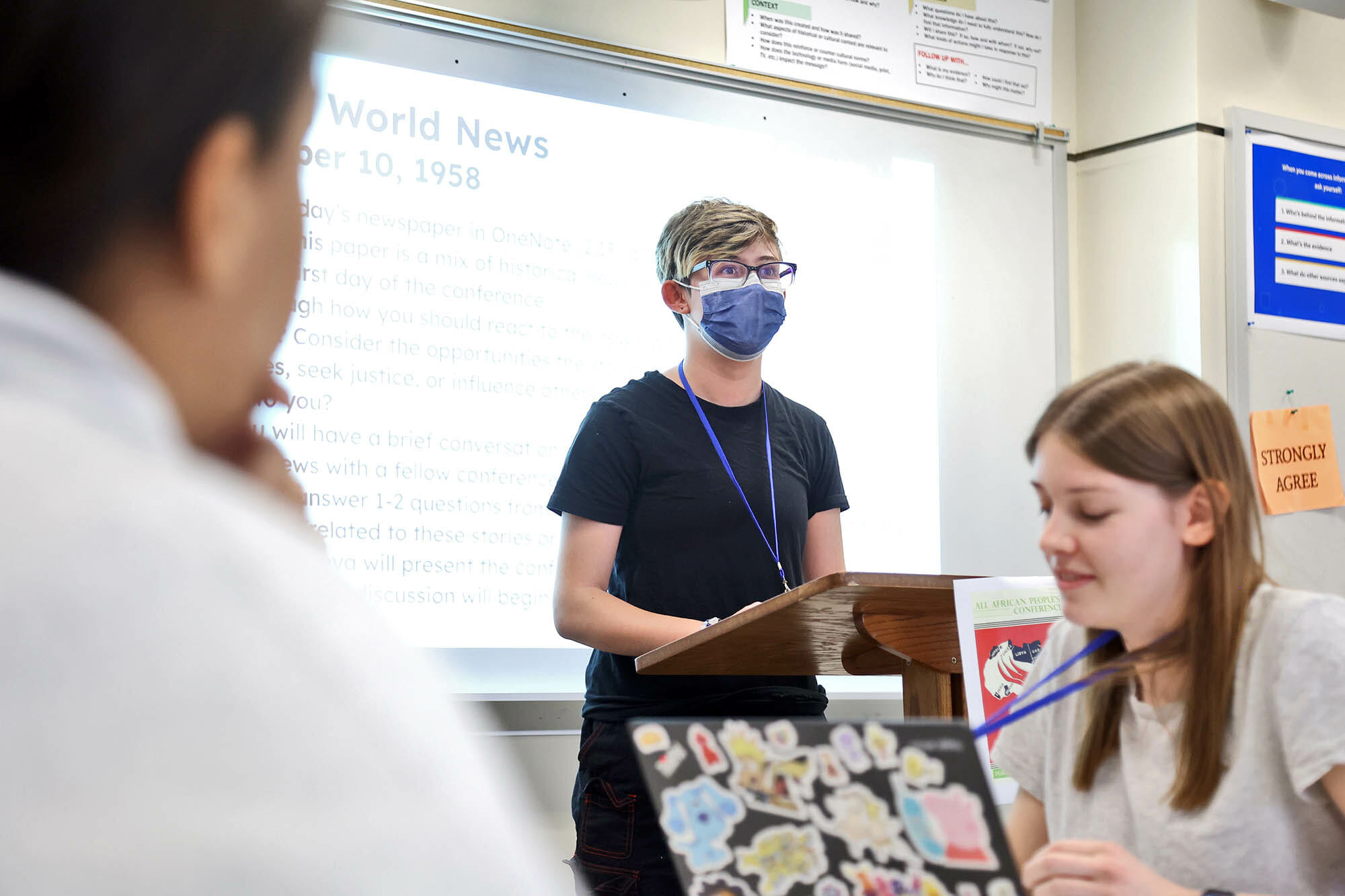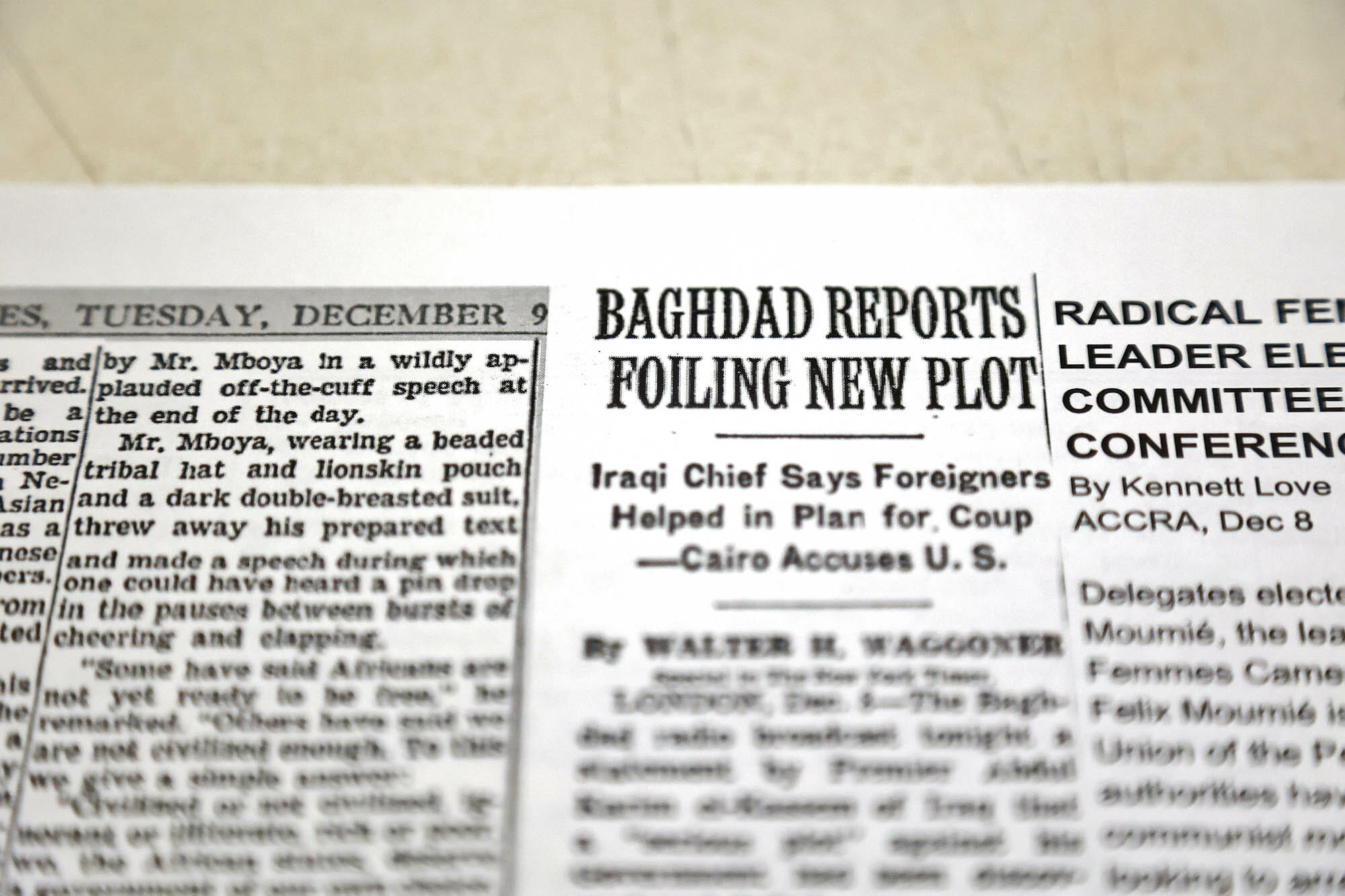Upper School History Teacher Alex Rolnick once again gathered his History of Africa students for a recreation of 1958’s All African People’s Conference (AAPC) in Accra, Ghana. This small class of eight students adopted the political platforms and beliefs of key representatives of states and parties from across the African continent, and then met to discuss, debate, and vote on proposals to end colonialism and shape an independent Africa. Dr. Sally Maxwell, Assistant Head of School for Teaching and Learning, made a special appearance as Dr. Marguerite Cartwright, an American journalist affiliated with the United Nations Correspondents’ Circle and Overseas Press Club, on Day 2, asking the delegates pointed questions about their positions and recommendations.
Each student assumed the role of a particular delegate who actually participated in the conference. They had specific goals to achieve during the conference, including convincing other delegates to vote on resolutions or support their ideas. After reviewing and assuming their roles, the class acted out the AAPC, including interacting socially, delivering speeches, and questioning each other at mock press conferences. Vibrant discussions on pan-Africanism, independence, decolonization, apartheid, economic blockades, a freedom fund, collaboration, relationships with other countries, allies, violence and nonviolence, capitalism, socialism, imperialism, nationalism, and more were debated and questioned. The activity encouraged them to listen to different points of view, discuss various goals and their achievability, and methods for achieving those goals.
Rolnick introduced this activity in the class last year, but greatly expanded the exercise this year after attending a professional development conference last summer. « Last year’s activity was a miniature one (each student got a paragraph role and we did the whole activity in a day), and this one has significantly expanded roles and individual objectives, and we’re spending three to five class periods on it with assessments integrated into it, » he said. After attending the conference, Rolnick was inspired to write an entire game book in the style and format of the conference’s historical games. He partnered with a college-level collaborator who had run a version of the game in one of his college courses.
The students are essentially dropped into a key moment of historical tension, and must learn about their « character’s » objectives, worldview, allies, and opponents to successfully participate. Then, they attempted to achieve victory through formal speeches, informal debate, negotiations, and even conspiracy. The goal is not to have the students replicate the actual outcome of the original AAPC, but to sink deeply into the various themes of the time. A debriefing session led by Rolnick sets the record straight, and students can develop a deeper understanding and appreciation for what the original « players » accomplished.
Camden Miller ’24 took on the role of Patrice Lumumba, the leader of the Congolese National Movement for Independence. « With the activity, we have been given an opportunity to fully immerse ourselves in what we’ve been studying, and I have found the experience to be especially rewarding, » he said. » Along with finding my initial research about [Lumumba] intriguing on its own, I was more motivated to dig deeper, knowing that the more I learned about him, the better I could play my role in the conference. I really enjoy the game-like format of discussion and debate, which has given us the chance to demonstrate our knowledge in a more engaging way, as opposed to the standard paper or quiz. »
Part of his speech included these powerful words: « In order to build strong states, built on the values of the people, that will not crumble in the wake of the departure of European colonialist presence, we must continue to enlighten ourselves politically. »
« So far, this project has allowed me to gain insightful knowledge over the dictatorial rule Westerners had over states in Africa, » said Ava Moore ’24, who was Martha Moumie from Cameroon. « If there was one thing I would like readers to take away from not only this game but this African History class as a whole, is that African people were not weak, uncivilized, or uneducated, but rather stripped of opportunities, rights, and freedom due to their colonizer’s exploiting them for economic gain and control. » As Moumie, Moore reminded her fellow delegates of the importance of women’s rights in the struggle for independence. In her speech, she said, « I hope you all take into account women’s rights while also looking at the colonial rule the French are placing over all of the Cameroonian people. »
The game forces students to work collaboratively, and their game book instructs them « in order to achieve your objectives, you must speak with others. You will never muster the strength to prevail with allies. Collaboration and coalition building are at the heart of every game. » Throughout the project, students also learn to write persuasively, practice speaking in public, exercise critical thinking skills, negotiate with others, adapt to changing circumstances, and work under pressure. What great lessons for students to take with them beyond this class and even into life after graduation!
The students did a great job embodying their roles, presenting compelling viewpoints, asking great questions of each other, and offering support and critical analysis.
